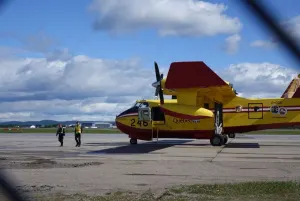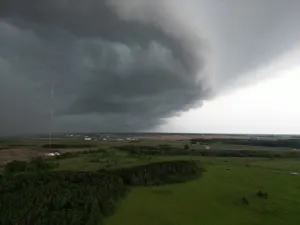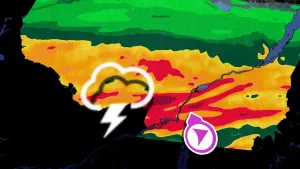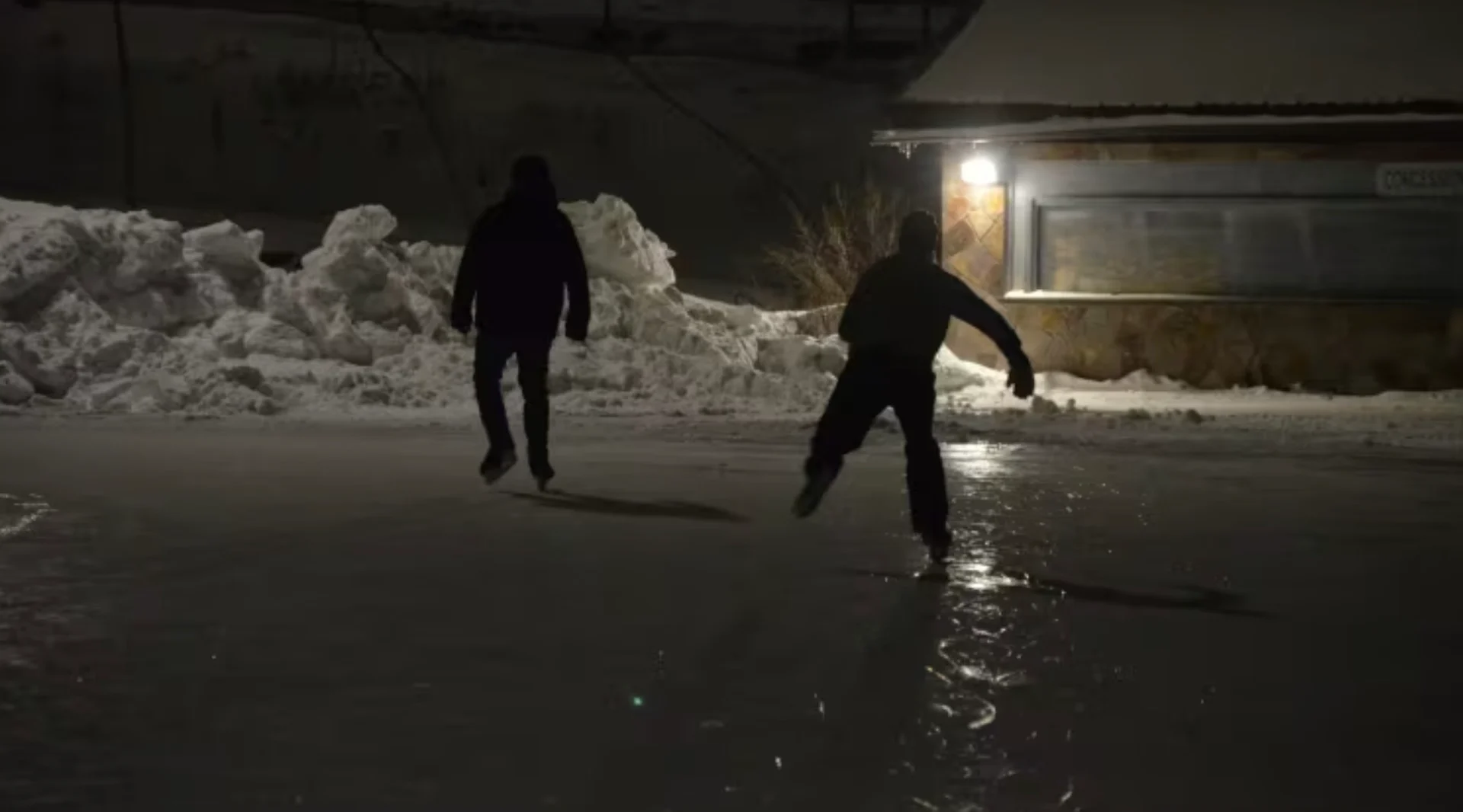
How to adapt northern Ontario rinks to a future of warmer winters
In the midst of one of the warmest winters on record, the operators of outdoor rinks from across the province gathered last month in Toronto to find out how they can ensure that future generations get a chance to lace up the skates.
"Over the last few years there has been an extreme interest in revisiting the old way of providing skating opportunities," said Terry Piche from the Ontario Recreation Facilities Association, which organized the Outdoor Ice Symposium.
DON'T MISS: Outdoor skating rinks in the Montreal area are slowly disappearing
"We took a look at what other municipalities are doing. And we're noting that many are moving away from the traditional outdoor rink and going to skating paths that have mechanical refrigeration assistance to them so that they can do that."
Piche, who is based in the small northern Ontario town of Chapleau, says they also had presentations from a company in the U.S. that sets up outdoor rinks for just a few weeks at a time, so the local government knows exactly how much to budget for outdoor skating.
He says outdoor rinks will also have to become more sophisticated that a flat patch of grass encircled by wooden boards.
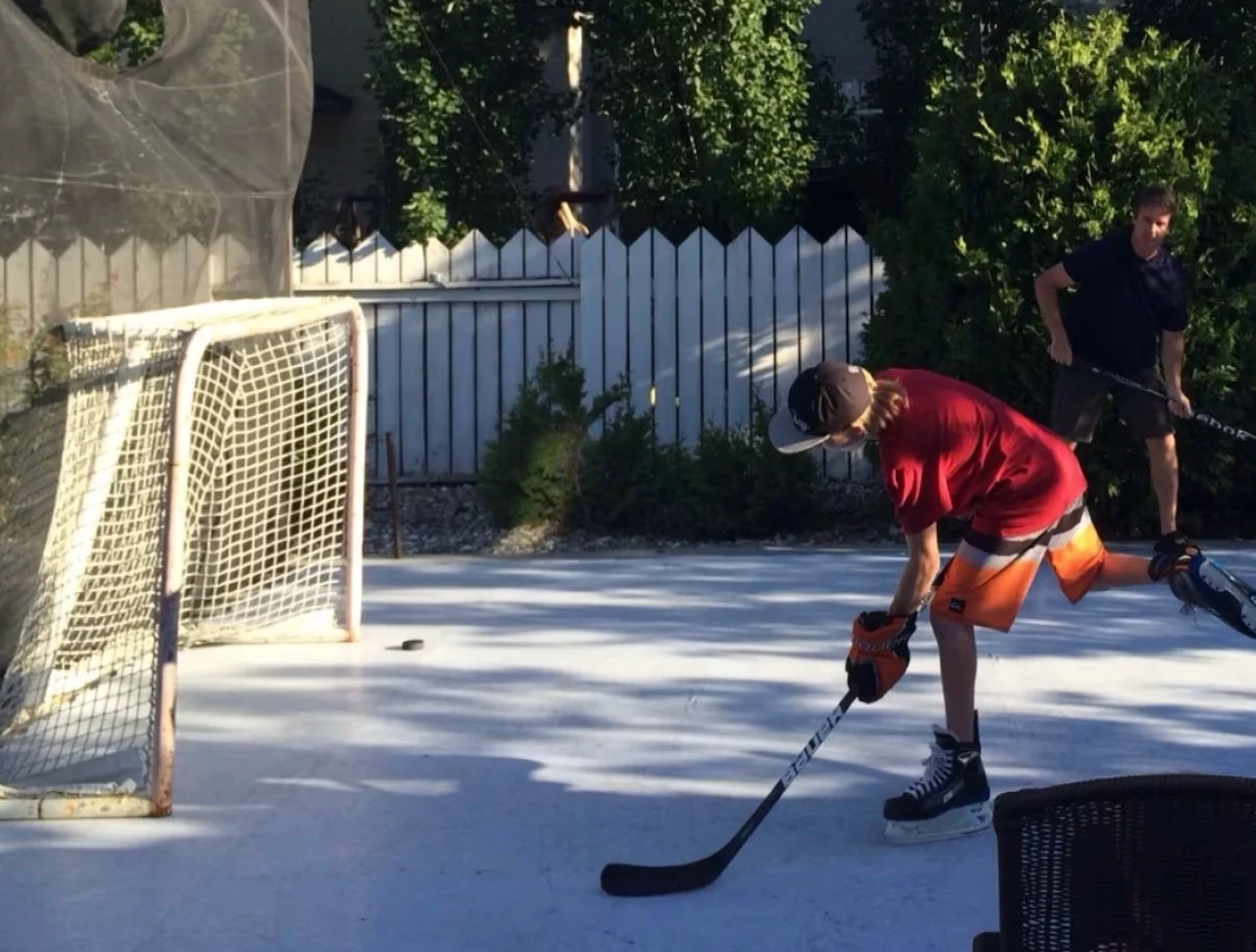
Synthetic plastic ice has come a long way since the experiments in Iron Bridge, Ont. in the 1980s and could be an option for outdoor skating rinks. (Madeline Kotzer/CBC)
"It comes down to the design of the actual infrastructure," said Piche.
The symposium also saw presentations from the manufacturers of synthetic plastic ice that has improved greatly since first being introduced in the 1980s.
One of the early experiments in fake ice was in the small northeastern Ontario town of Iron Bridge, where the indoor arena was built without ice making equipment.
Jane Armstrong, now a municipal councillor, remembers the experiment being a failure, with the white plastic sheets being ripped out after a short trial.
"There was a lot of complaints. It wrecked skates because they would get so hot that if you touched the blade, it would actually bend," she said.
Iron Bridge, now part of the Municipality of Huron Shores, is now using its arena for basketball, ping-pong and other iceless activities, so Armstrong says a return to synthetic ice is very unlikely.
"We've been there, tried that didn't buy the T-shirt. We still do not have ice in the arena, we're turning it into a rec centre now," she said.
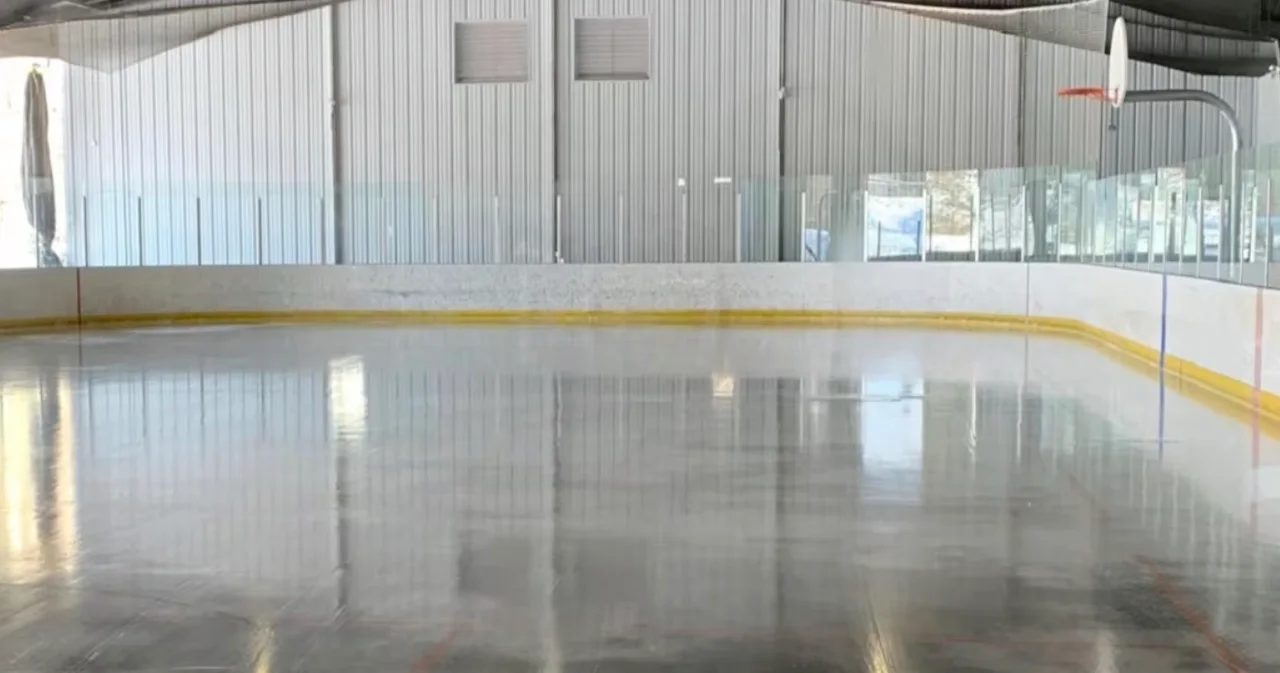
McDougall Township near Parry Sound designed their outdoor rink to be able to withstand warmer winter conditions, but the council is looking into the cost of installing refrigeration systems. (McDougall Township)
In McDougall Township near Parry Sound, Mayor Dale Robinson says they "were already starting to see signs of climate change" a decade ago when they built a new outdoor recreation centre.
It has a metal roof, is enclosed on three sides, with the open side facing north to keep the sun off the rink, as well as a curtain system to keep the cold air in.
"It's been working excellent," said Robinson.
"Our goal has always to have it open for the Christmas holidays and keep it open through March break."
However, he says "this year is kind of an extreme year" and the rink has opened and closed several times and the township council is now exploring the costs of putting in a refrigeration system to ensure a longer skating season in the years ahead.
Piche says many local leaders across the province are going to have to decide how important skating and hockey rinks are compared with other recreational needs.
"I think we've gone through a real change in the whole cultural aspect [in Canada]," he said.
"We have whole generations of kids who have not been on a skating pad."
WATCH: Electric Zambonis can curb indoor air pollution at arenas
Thumbnail courtesy of Erik White/CBC.
The story was originally written by Erik White and published for CBC News.







